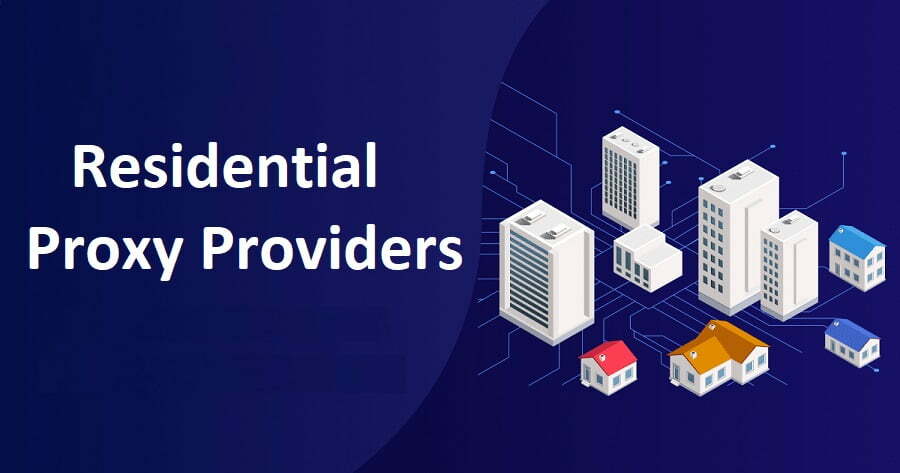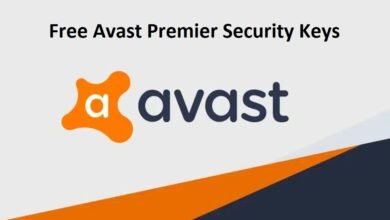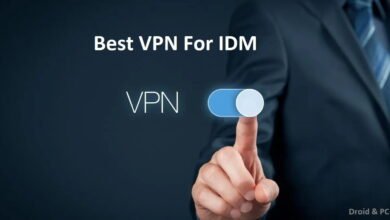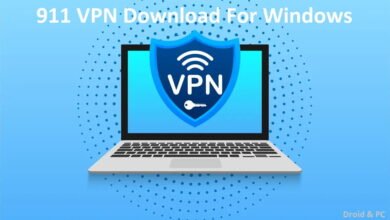10 Best Residential Proxy Providers 2025

If you’ve ever found yourself blocked, flagged, or stuck behind geo-restrictions while trying to scrape data, run multiple accounts, or just browse anonymously, then residential proxies are likely what you need. Unlike datacenter proxies, these look like real users because they use IP addresses assigned to actual devices via ISPs (Internet Service Providers).
In this article, we’ll walk through 10 of the best residential proxy providers available today. We’ll discuss key features, use-cases, strengths, and caveats so you can pick the right one. We’ll also cover how to evaluate them, what to watch out for, and answer some FAQs at the end.
Disclaimer: Residential proxies are legal when used for legitimate purposes, such as market research, SEO tracking, ad verification, or accessing region-specific content. However, using them for illegal activities or to violate a website’s terms of service can lead to consequences. Always use proxies responsibly.
Read More: 10 Best Free VPN For Android Without Registration
Why Residential Proxies Matter
So, why are residential proxies such a big deal?
Because they make you look like a real user online. Each IP address comes from an actual internet service provider, meaning it’s tied to real homes and devices. This makes it much harder for websites to detect and block you.
If datacenter proxies are like soldiers in uniform, identical and easy to spot, the residential proxies are like regular people in the crowd. They blend in naturally.
They’re ideal for:
- Web scraping without constant bans
- Managing multiple social media or e-commerce accounts
- Testing localized ads or SEO campaigns
- Checking website performance across different regions
- Collecting price or market data
The downside? They can be more expensive and require smarter setup and management. But if you’re serious about reliable, undetectable access, they’re worth it.
How to Choose the Right Residential Proxy Provider
Not all proxy providers are equal. Here are a few key things to look for when choosing one:
- Pool Size and Coverage – A larger number of IPs across many countries gives you more flexibility.
- Speed and Reliability – A proxy is useless if it’s constantly timing out or getting blocked.
- Session Options – Rotating or sticky sessions let you pick between changing IPs often or keeping the same IP for longer.
- Targeting Filters – Being able to target by country, city, or even ZIP code can be a game-changer.
- Protocol Support – Look for HTTP, HTTPS, and SOCKS5 support for maximum compatibility.
- Ethical Sourcing – Make sure the provider obtains IPs with user consent.
- Ease of Use – A clear dashboard, API access, and responsive support make your life easier.
- Pricing Structure – Some charge per gigabyte, others monthly. Choose based on your expected usage.
Top 10 Residential Proxy Providers
1. Bright Data (formerly Luminati)
Bright Data is the biggest name in the residential proxy world. It offers over 150 million IPs across hundreds of countries. Its network is enterprise-grade and extremely stable.
Why it stands out:
- Enormous global IP pool
- City and ISP-level targeting
- Advanced rotation and session options
What to consider:
- It’s one of the most expensive options
- It may be too complex for beginners
Best for: Enterprises and large-scale projects that need guaranteed reliability and deep customization.
2. Oxylabs
Oxylabs is another major provider known for high performance and excellent uptime. It offers more than 100 million residential IPs with strong global coverage.
Why it stands out:
- High-speed connections and strong infrastructure
- Supports both HTTP/HTTPS and SOCKS5
- Great for high-volume data extraction
What to consider:
- Premium pricing
- More suited for advanced users
Best for: Businesses handling large data scraping or analysis tasks.
3. Smartproxy (recently rebranded as Decodo)
Smartproxy strikes a great balance between performance and cost. It has a network of over 115 million IPs across nearly every country, and its dashboard is easy to use.
Why it stands out:
- Affordable and user-friendly
- Reliable speeds and success rates
- Excellent for both individuals and teams
What to consider:
- May lack some of the advanced targeting features of the top-tier providers
Best for: Small to medium businesses that want solid performance at a reasonable price.
4. SOAX
SOAX offers clean residential IPs with precise targeting options. You can filter by country, region, or even city. It’s ideal for tasks that need accuracy in location targeting.
Why it stands out:
- Over 150 million IPs
- Excellent geo-targeting controls
- Reliable uptime
What to consider:
- Slightly slower speeds than premium options
Best for: Businesses needing accurate geo-location testing or ad verification.
5. NetNut
NetNut takes a unique approach by connecting directly with ISPs rather than relying on peer devices. That gives it faster, more consistent connections. It offers around 85 million residential IPs globally.
Why it stands out:
- Great speeds due to direct ISP connections
- Offers both rotating and static residential proxies
- Very stable network
What to consider:
- Prices can be higher per GB
- Best results come with technical setup experience
Best for: Speed-focused users or teams that value stability and quality connections.
6. IPRoyal
IPRoyal is known for being affordable while still offering solid reliability. It’s great for small businesses or individuals who don’t need huge data volumes.
Why it stands out:
- Pay-as-you-go plans
- Easy setup and dashboard
- Clean and stable IPs
What to consider:
- Smaller IP pool than enterprise providers
- Fewer advanced targeting options
Best for: Freelancers, startups, or users testing residential proxies for the first time.
7. Webshare
Webshare offers rotating and static residential proxies at reasonable prices. It’s fast, simple, and designed with user experience in mind.
Why it stands out:
- Competitive pricing
- Easy-to-navigate interface
- Reliable performance
What to consider:
- Limited live customer support
- Smaller feature set compared to premium competitors
Best for: Individuals and small teams who want affordable residential proxies without complexity.
8. NodeMaven
NodeMaven focuses on providing high-quality, clean IPs with fewer bans and high success rates. They also offer long sticky sessions for consistent connections.
Why it stands out:
- Excellent IP reputation and quality
- Sticky sessions up to 24 hours
- Great for platforms sensitive to bot activity
What to consider:
- Smaller pool than big providers
- Not ideal for massive-scale scraping
Best for: Social media managers, affiliate marketers, or anyone needing stable, long sessions.
9. Massive
Massive is a lesser-known but growing proxy provider. It focuses on performance and user experience, offering both rotating and sticky residential proxies.
Why it stands out:
- Solid performance for its size
- User-friendly design
- Good customer support
What to consider:
- Smaller IP pool than industry leaders
- Fewer advanced filters
Best for: Users who want reliable performance and are open to exploring alternatives beyond the mainstream.
10. Rayobyte
Rayobyte rounds out the list with a strong mid-tier offering. It provides residential proxies that balance cost, quality, and speed, with city-level targeting options.
Why it stands out:
- Offers both static and rotating proxies
- Good targeting flexibility
- Decent uptime and reliability
What to consider:
- Smaller infrastructure than major players
- Still growing its IP pool
Best for: Mid-sized users looking for dependable, cost-effective residential proxies.
Comparison Snapshot
| Provider | Approx. Pool Size | Best For | Key Advantage | Key Drawback |
|---|---|---|---|---|
| Bright Data | 150M+ | Enterprise-scale operations | Massive IP pool | High cost |
| Oxylabs | 100M+ | Large-scale scraping | Strong infrastructure | Premium pricing |
| Smartproxy | 115M+ | Small to medium businesses | Great balance of price and performance | Less customization |
| SOAX | 150M+ | Geo-targeted tasks | Detailed targeting | Slightly slower |
| NetNut | 85M+ | High-speed data tasks | Direct ISP connections | Pricier per GB |
| IPRoyal | Moderate | Freelancers and startups | Pay-as-you-go plans | Smaller pool |
| Webshare | 80M+ | Budget-friendly use | Affordable and simple | Limited support |
| NodeMaven | 30M+ | Account management | Clean IPs, long sessions | Smaller pool |
| Massive | N/A | All-around users | Good performance | Limited data |
| Rayobyte | N/A | Mid-sized teams | Reliable targeting | Moderate scale |
Best Use Cases for Each Provider
- Web Scraping: Bright Data, Oxylabs, and Smartproxy
- Account Management: NodeMaven, IPRoyal, Webshare
- Ad Verification & SEO Testing: SOAX, NetNut, Smartproxy
- Market Research & Price Monitoring: Bright Data, NetNut, Oxylabs
- Budget-Friendly Use: IPRoyal, Webshare
Tips for Getting the Most Out of Residential Proxies
- Use rotation wisely. Frequent rotation is great for scraping but bad for logins or sessions.
- Keep your request rate natural. Don’t hammer servers with hundreds of requests per second. Spread them out.
- Monitor success and error rates. If you notice high block rates, change your proxy pool or session logic.
- Use targeting filters. Get country or city-level precision to improve accuracy.
- Start small. Test a few providers before committing to long-term plans.
- Combine with a good setup. Use proper browser profiles, fingerprints, and headers to stay undetected.
Frequently Asked Questions
Q1. Are residential proxies legal?
Yes, they are legal for legitimate use cases. Problems arise when they’re used to violate laws or website terms. Always review each site’s policies before use.
Q2. What’s the difference between rotating and sticky proxies?
Rotating proxies change your IP address automatically, which is perfect for web scraping. Sticky proxies keep the same IP for a set time, ideal for logins or managing accounts.
Q3. Do residential proxies guarantee anonymity?
They improve anonymity but don’t make you invisible. Sites can still detect suspicious behavior or patterns, so use them responsibly.
Q4. How do I know which provider is best for me?
Start with your goal. If you need enterprise-grade reliability, go with Bright Data or Oxylabs. For smaller needs, Smartproxy or IPRoyal offer great value.
Q5. Can I use free residential proxies?
Free proxies are risky. They often come from compromised devices, can be slow or insecure, and may leak your data. It’s better to use a reputable paid provider.
Q6. Are residential proxies better than datacenter proxies?
In most cases, yes. Residential proxies are less likely to be detected or blocked, though they cost more. Datacenter proxies are cheaper and faster, but easier to identify.
Conclusion
Picking the right residential proxy provider depends on your goals, budget, and scale. If you’re running a business that relies heavily on accurate data collection, you’ll want reliability and scale, think Bright Data or Oxylabs. If you’re a freelancer managing accounts or small tasks, IPRoyal or Webshare could be your best bet.
Remember, a proxy is only as good as how you use it. Manage sessions wisely, monitor results, and keep your activities compliant. The right residential proxy can make your online operations smoother, safer, and far more efficient.


